Another day with the dark impression of mountains fighting their way through the gloom of thick grey mist and rain. A short journey to reach Ettal Abbey and Pilgrimage Church. Ettal lies in a narrow mountain valley at the foot hills of the western alps, 900 meters above sea level. In medieval times despite being near a strategic alpine pass, Ettal remained isolated from any main roads. Today by comparison it is on one of the most popular tourist routes through Germany. The small village of Ettal is very pretty and welcoming. Hoping to have time to try the Ettal Beer and Cheese.
History of Ettal Abbey
Ettal Abbey owes its foundation to Emperor Ludwig the “Bavarian”. Following a promise by the Emperor in 1330, a community of monks, knights and their wives, founded the Benedictine Monastery at Ettal. The knights foundation proved unsustainable. A marble statue of the Virgin Mary brought back from Italy by King Ludwig as a gift for his new foundation, soon became an object of pilgrimage at the church, and is known as the Ettal Madonna.
Benedictine Abbey
Designed as a Benedictine Abbey and formed as an independent religious community,the abbey has large grounds and is self-sufficient in providing most of the necessities of daily living with its own workshops and crop fields. The life style at the Benedictine Abbey dates to a set of rules written in the sixth century by Saint Benedict of Nuria, who died in 547. The rules lay out the spiritual and intellectual organization of life according to the gospel for monks and their community.
Ettal Basilica
The Ettal Basilica began as a modest Gothic Church built between 1330 and 1370, the church destroyed by fire in 1744. Re-building took place in the more decorative Baroque style, with many construction changes occurring in later years. The Basilica has a richly decorated interior, mostly in Baroque style with touches of Rococo, it has gilding, stucco and wonderful ceiling frescoes. Respected artists of the time Johann Jakob Zeiller, painted the ceiling fresco, and Martin Knoller the choir and main altar painting. The Basilica has six side altars with statues of various saints including Saint Magnus, who is the saint relevant to the founding of the Abbey in Fussen .
Life at the Abbey
It is interesting to visit Ettal and see the layout of the Abbey and the way of life the monks have followed for hundreds of years. Ettal encompasses a Basilica, the Abbey, Parish and Pilgrimage Church. Today the religious community consists of around 50-60 members. The economy for the abbey is still based on what the Monks produce and earn themselves from business ventures such as the Ettal Brewery; a distillery producing an herbal liqueur; a hotel and a publishing house. The Ettal beer is available in the village. The Monks also have an interest in a cheese-making factory in the village.
Mist and rain seem to be a part of the environment at this time of year (April) and add to the atmosphere surrounding the Abbey and Basilica. Despite the amazing ceiling frescoes, and gilded stucco decoration the Basilica remains quite austere. By comparison I think of the small pilgrimage Wieskirsch we visited with its amazing rococo decoration and such a warm joyful atmosphere.
Next, looking forward to Munich…..
Related Posts:
- Garmisch-partenkirchen ski resort – Oberammergau village
- Extravaganza – Schloss Linderhof | King Ludwig
- Hohenschwangau Neuschwanstein Schwangau
- Beautiful Schloss Neuschwanstein
- Abbey of St Mang’s Fussen Bavarian Alps
- Beautiful rococo Wieskirche beautiful Bavarian alps
- Augsburg Fuggerei village settlement
- Dinkelsbuhl medieval fortifications-medieval city wall
- Rothenburg – a beautiful medieval town
- Romantic Road attractions Germany
- Romantic Road Frankfurt Germany
- Bavaria Germany Wurzburg – along the Romantic Road
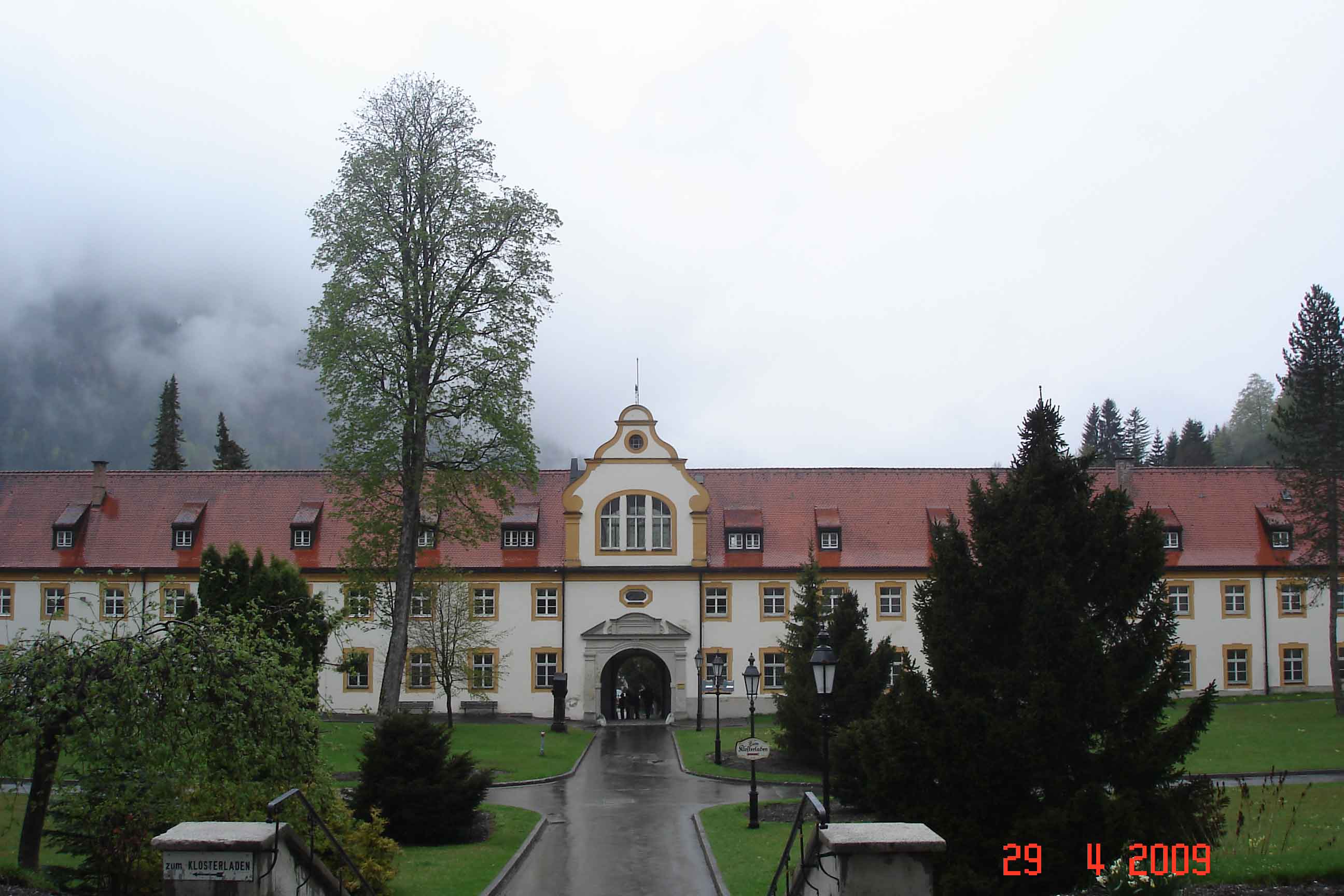
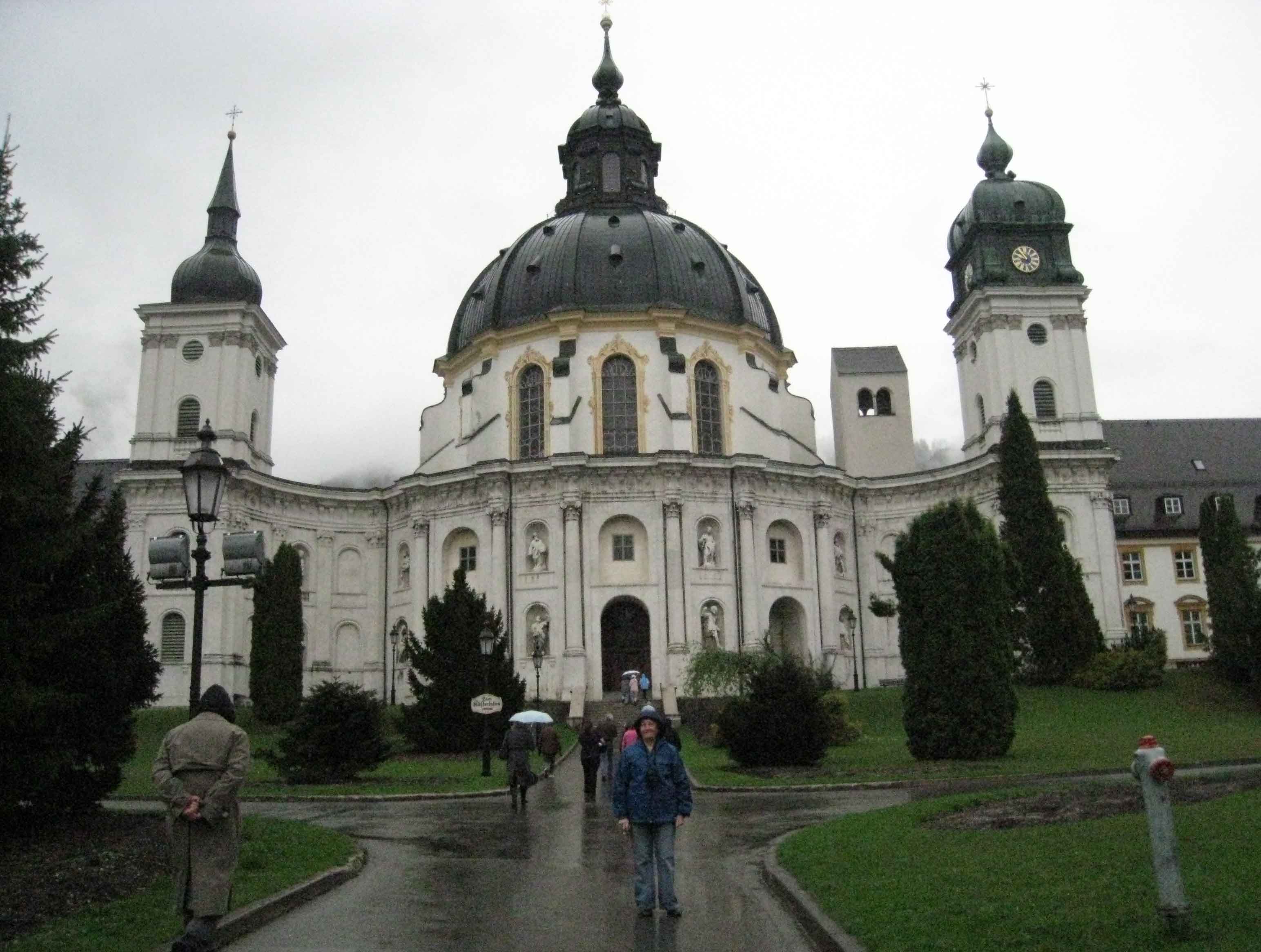
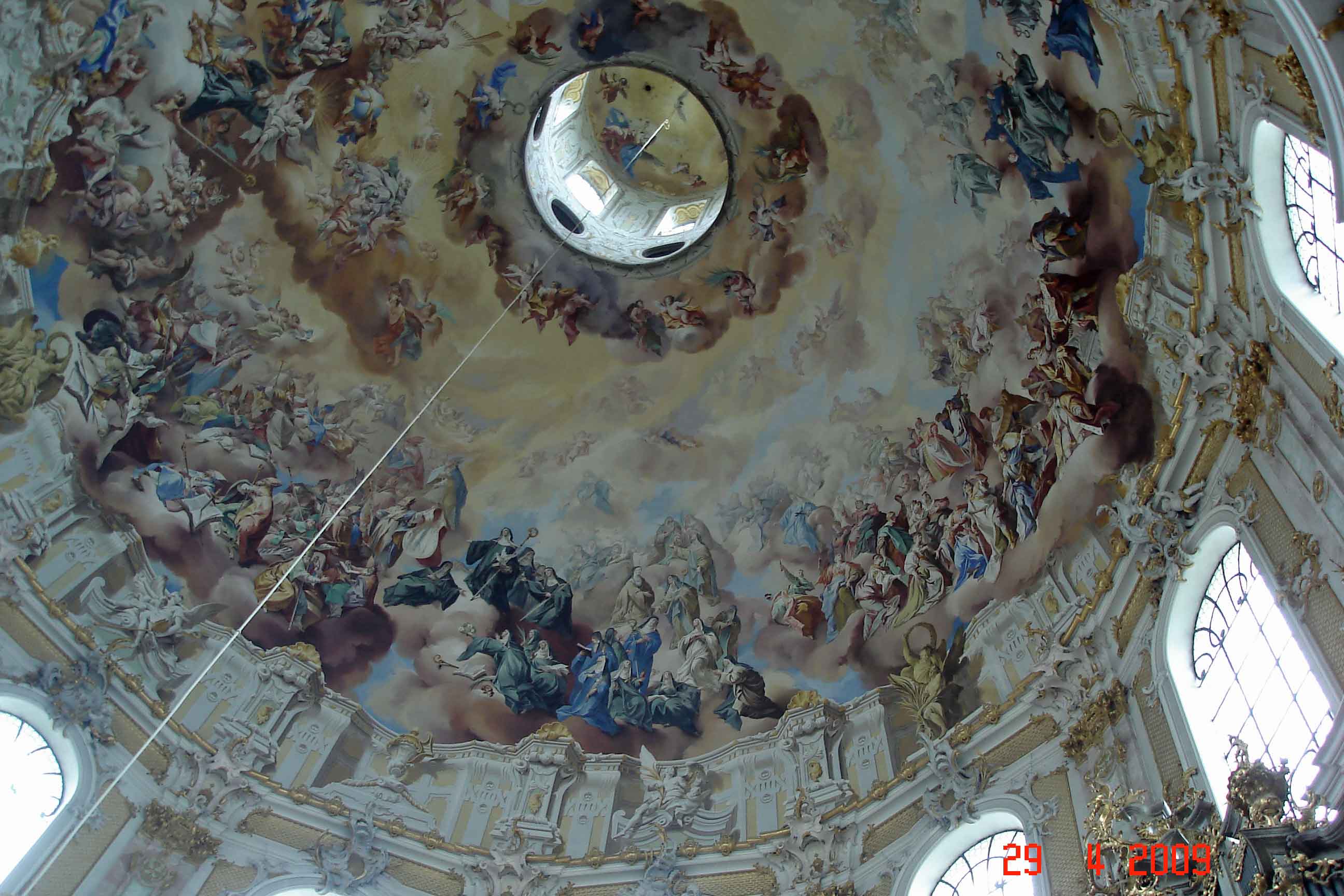
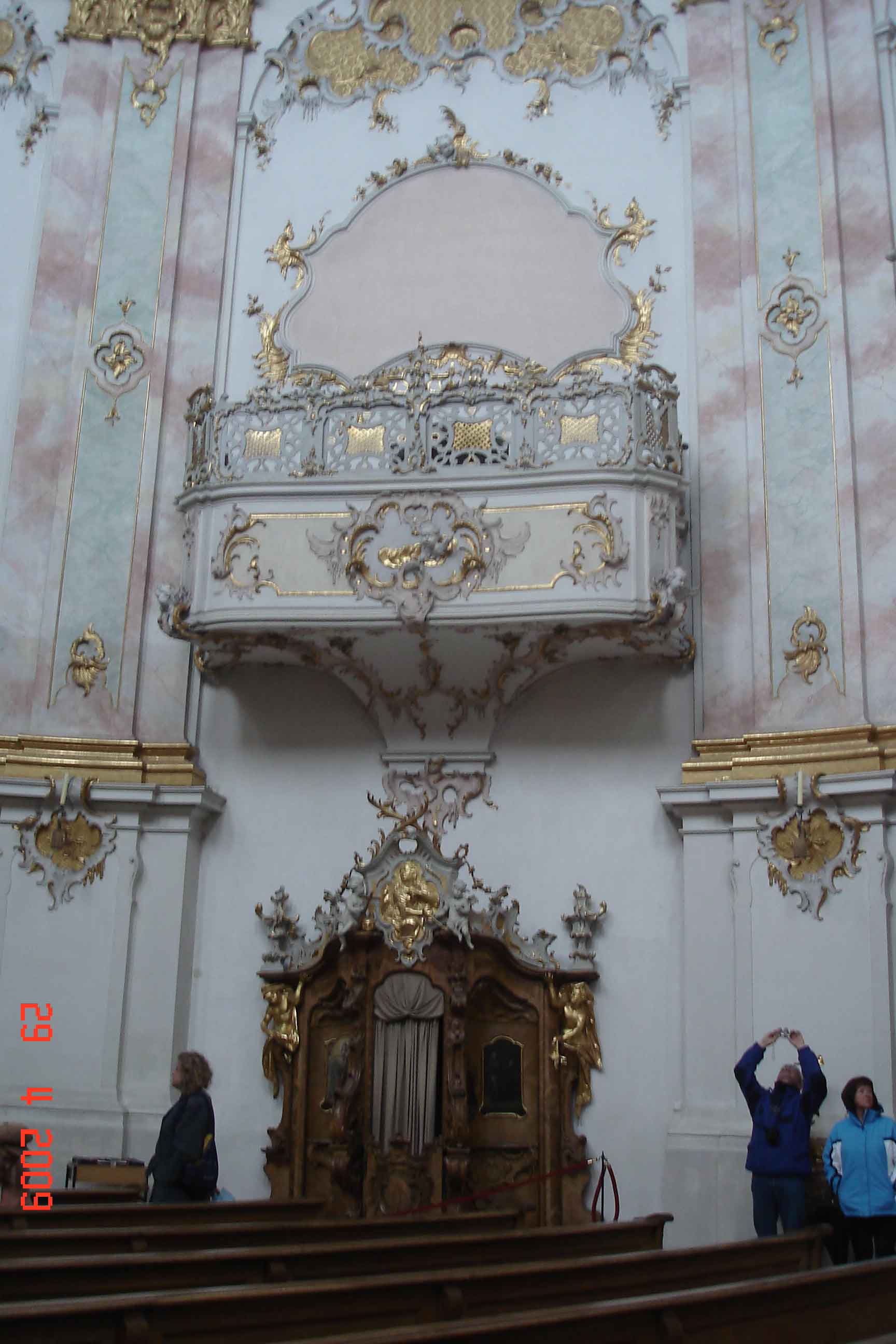
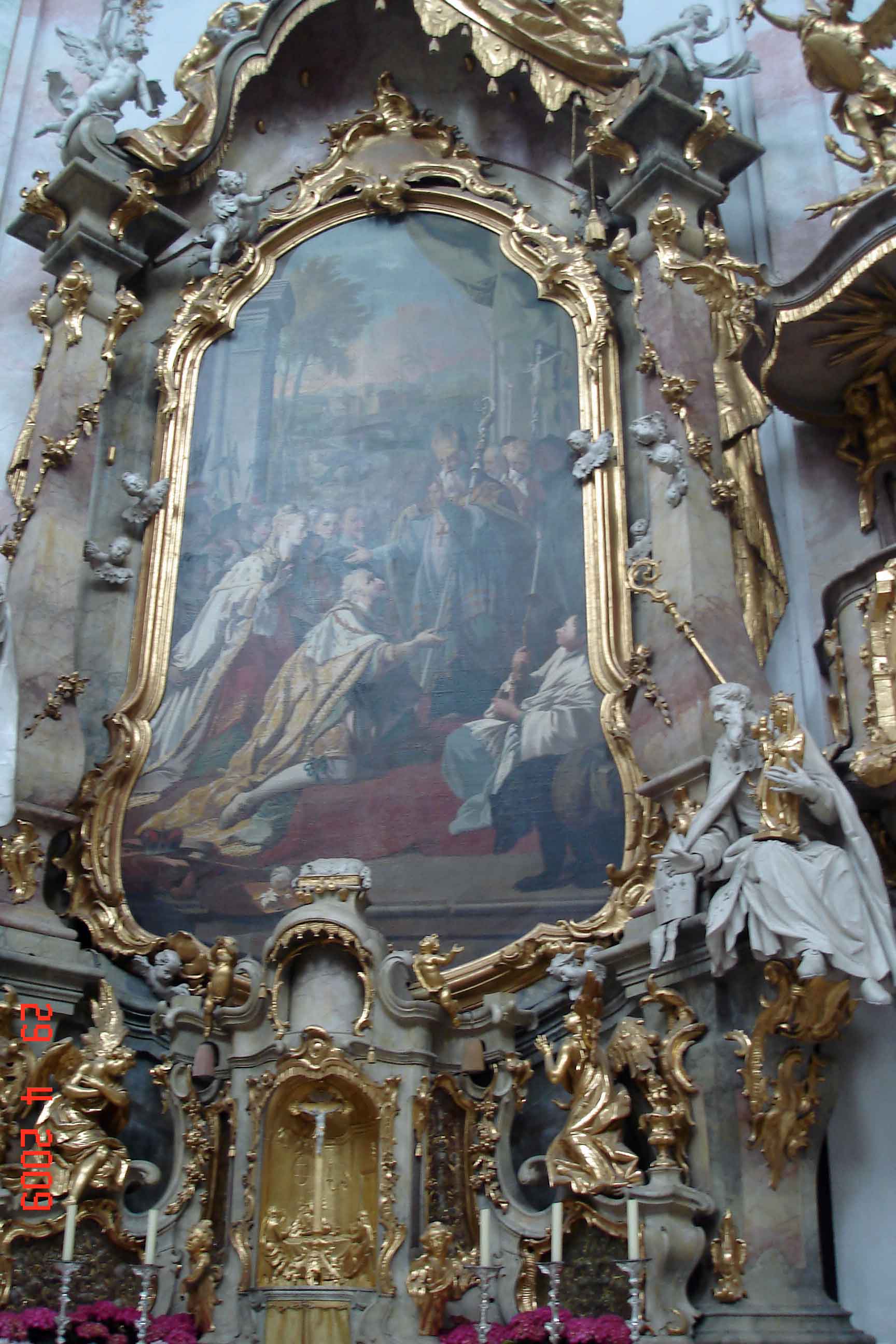
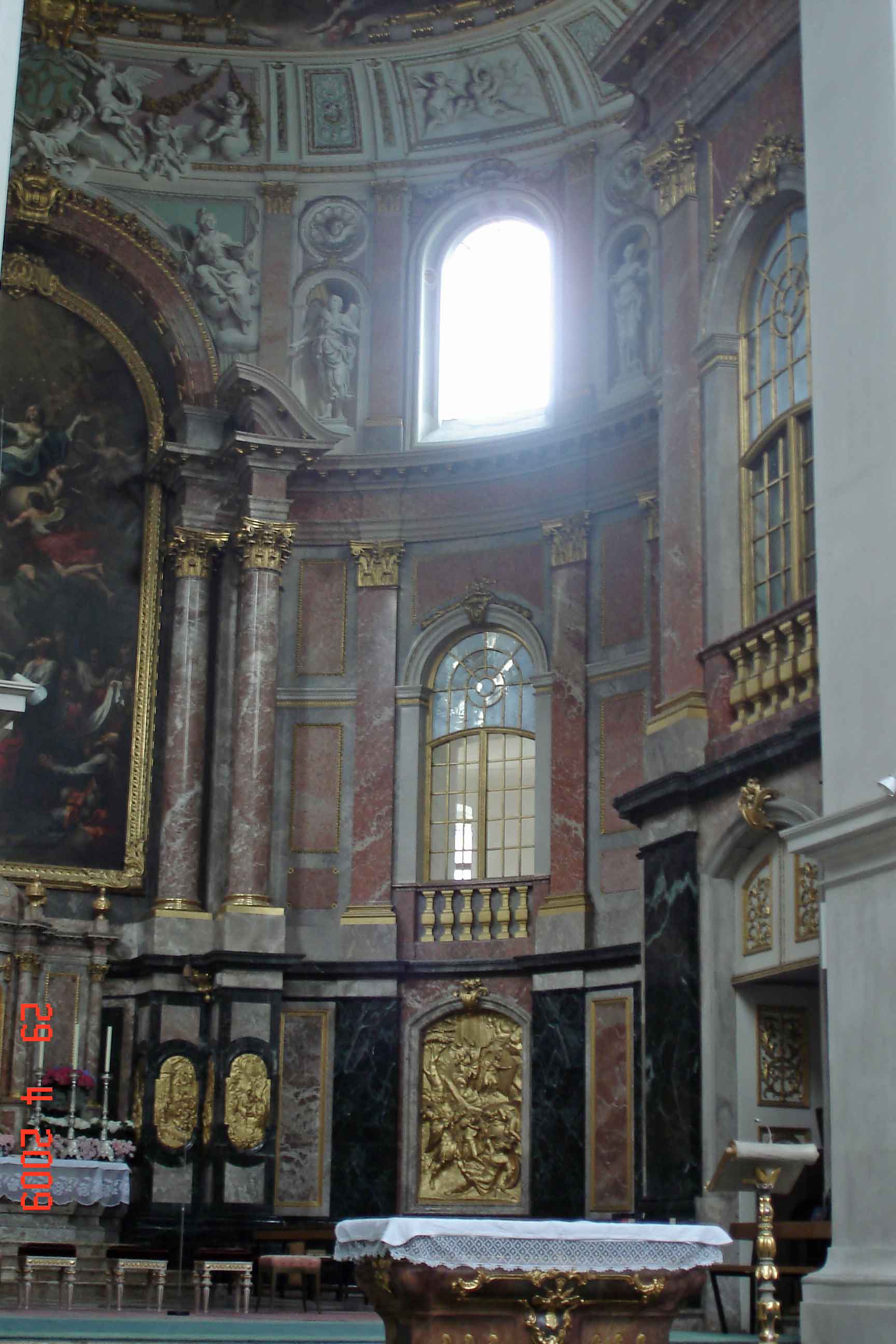
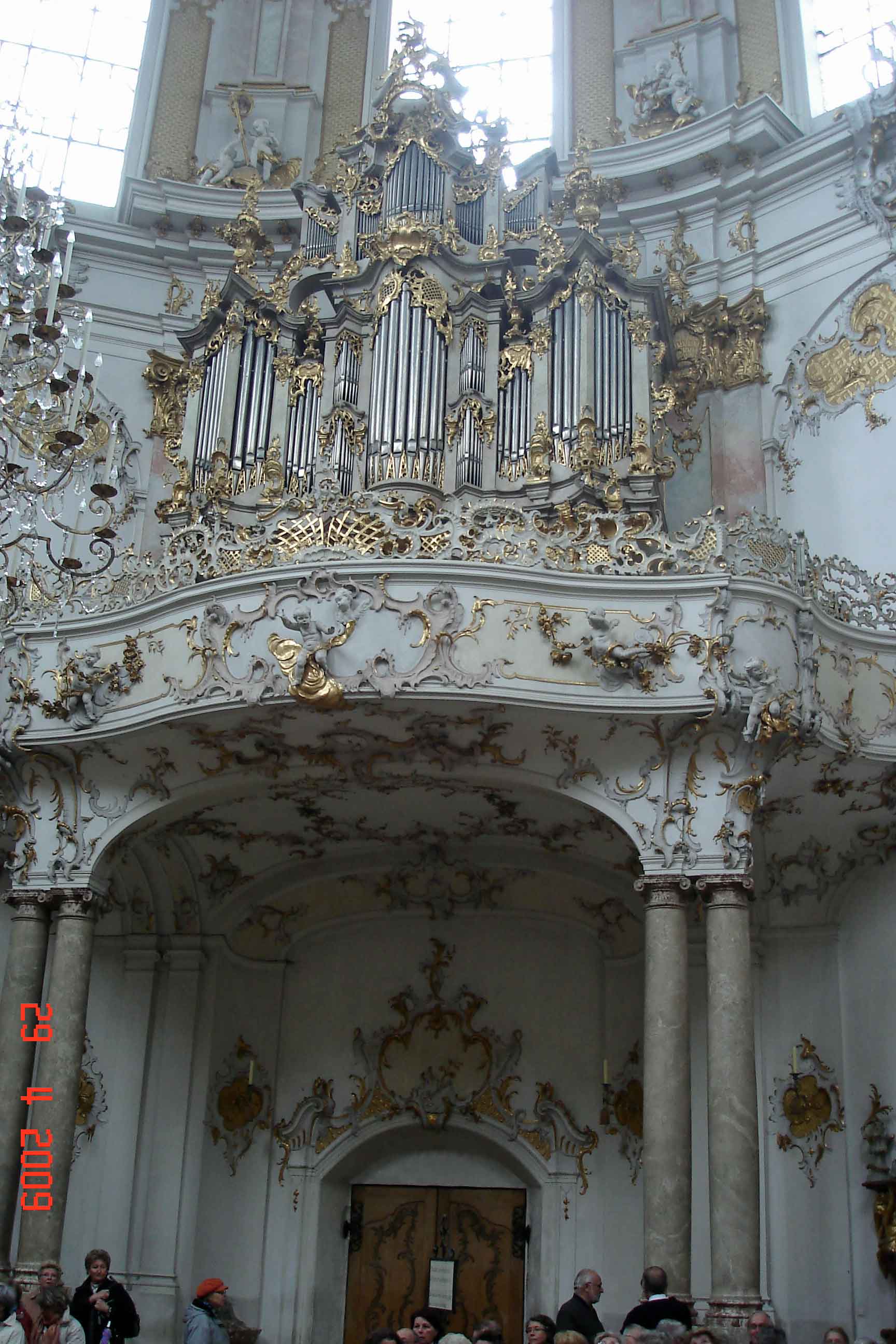
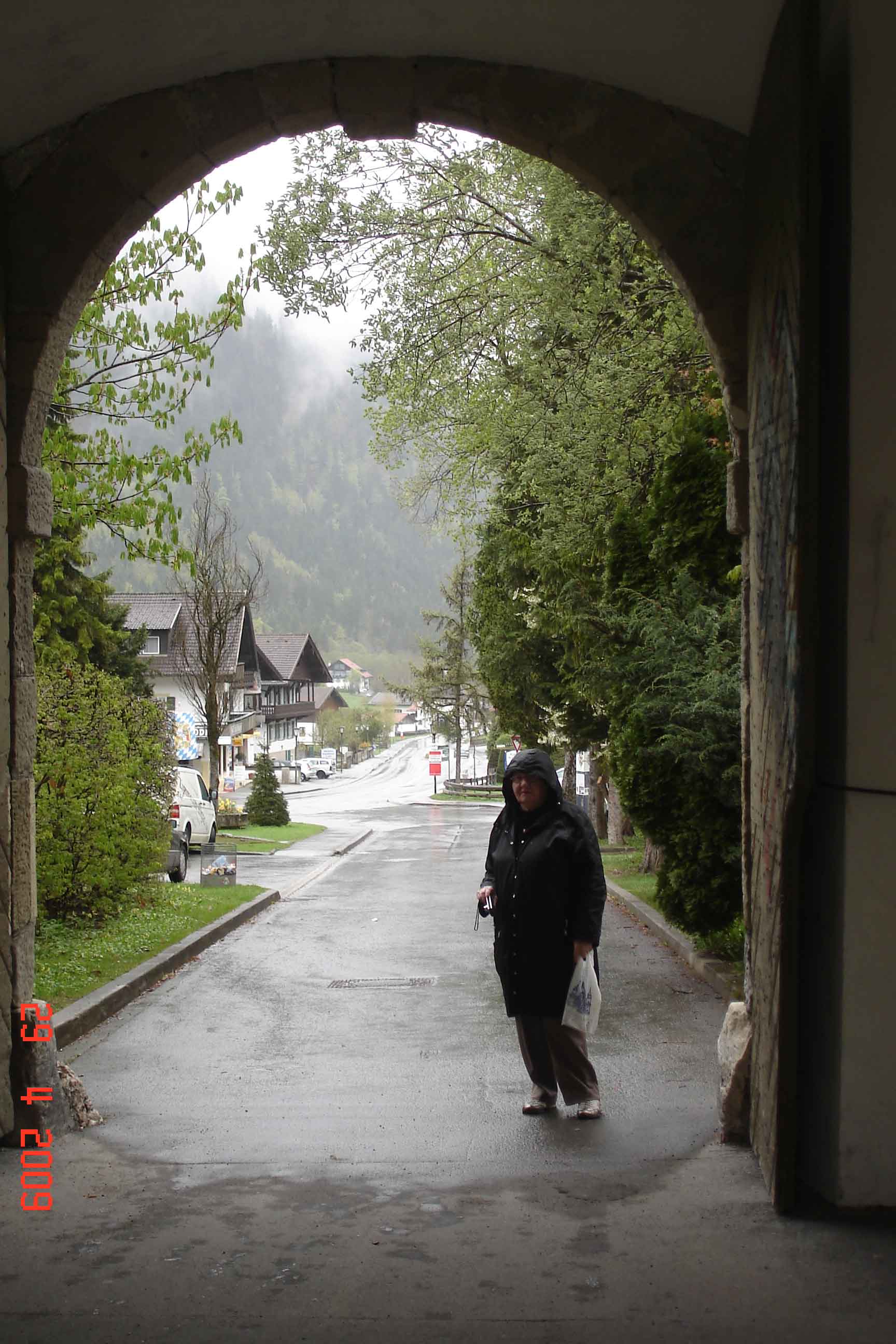
Really beautiful interior. It’s amazing to think that so much detail has gone into the works of art and interior structure when now buildings can often be so boring.
Hi Dale, Palaces and churches are icons of religious art and beauty from those times. We are lucky to be able to see them still. Thanks so much for your comment. I really enjoyed your post too. Lyn